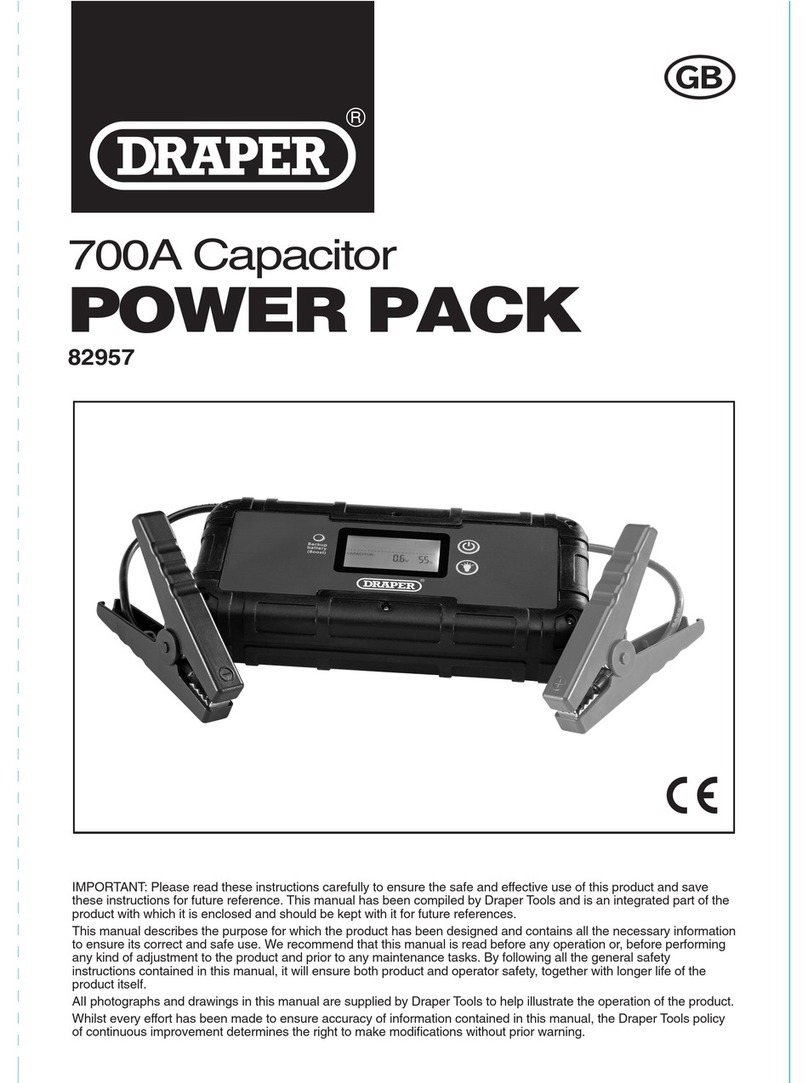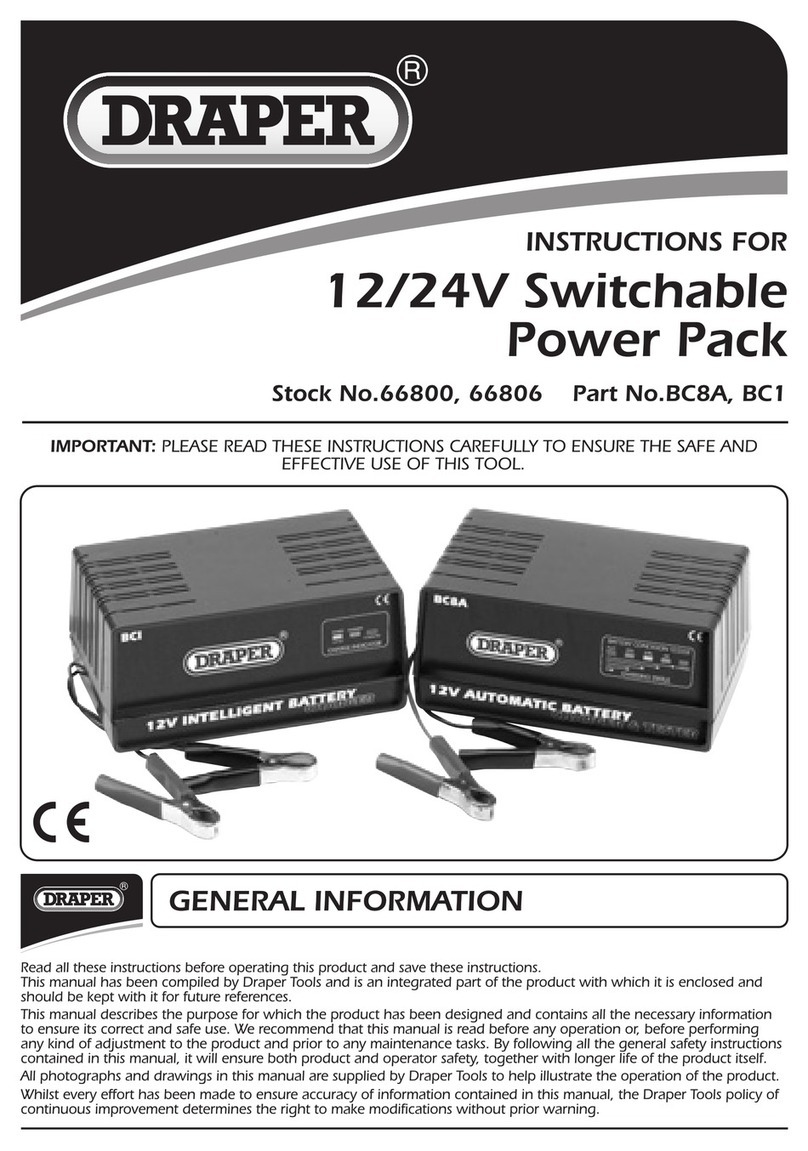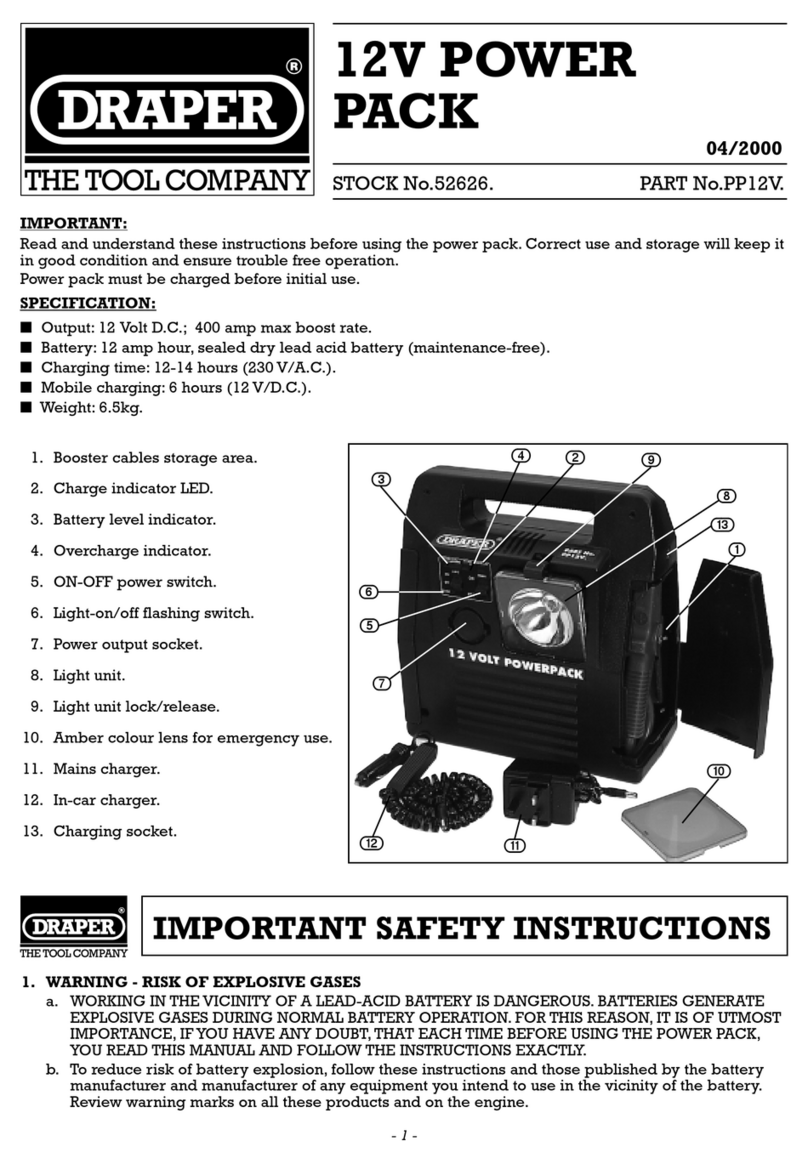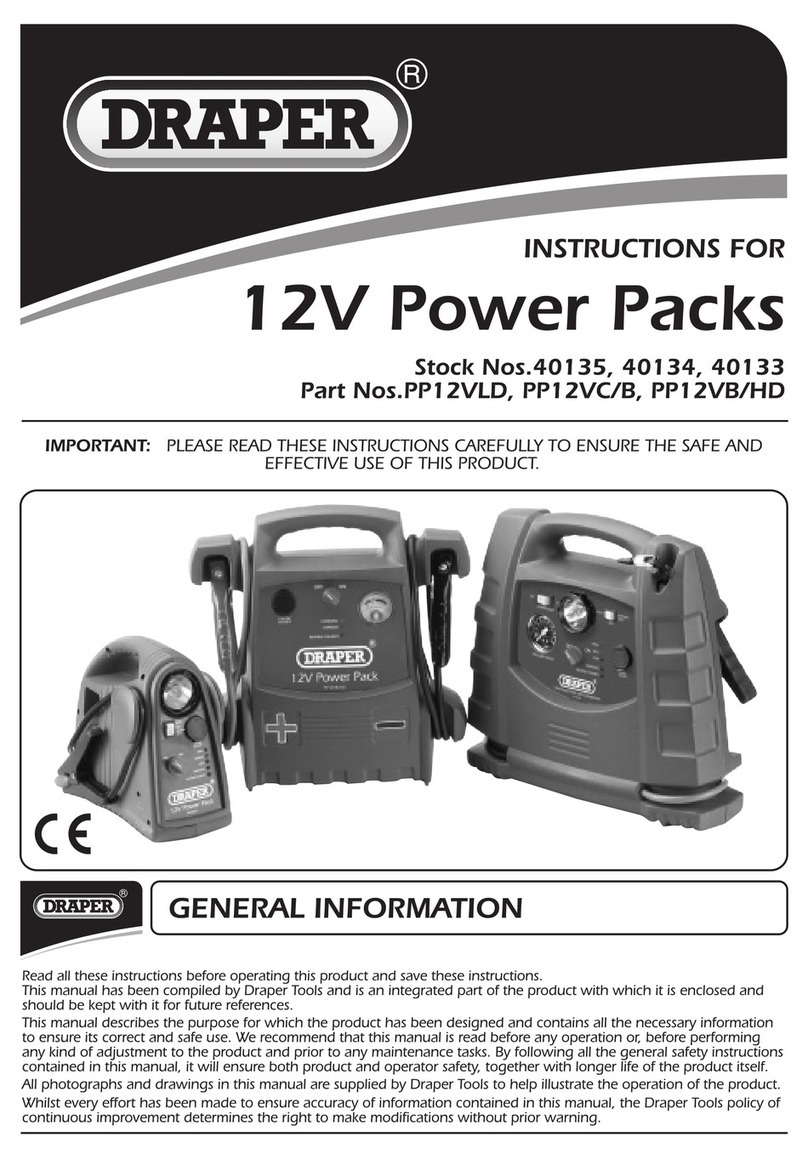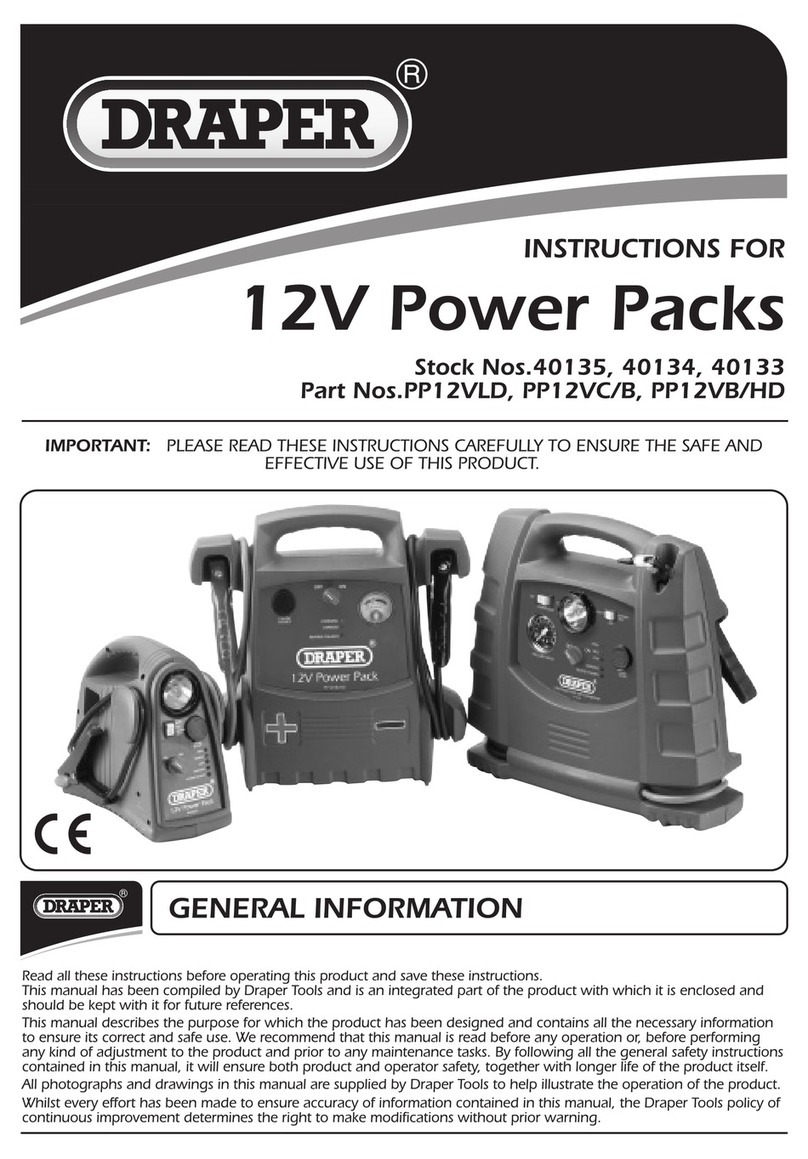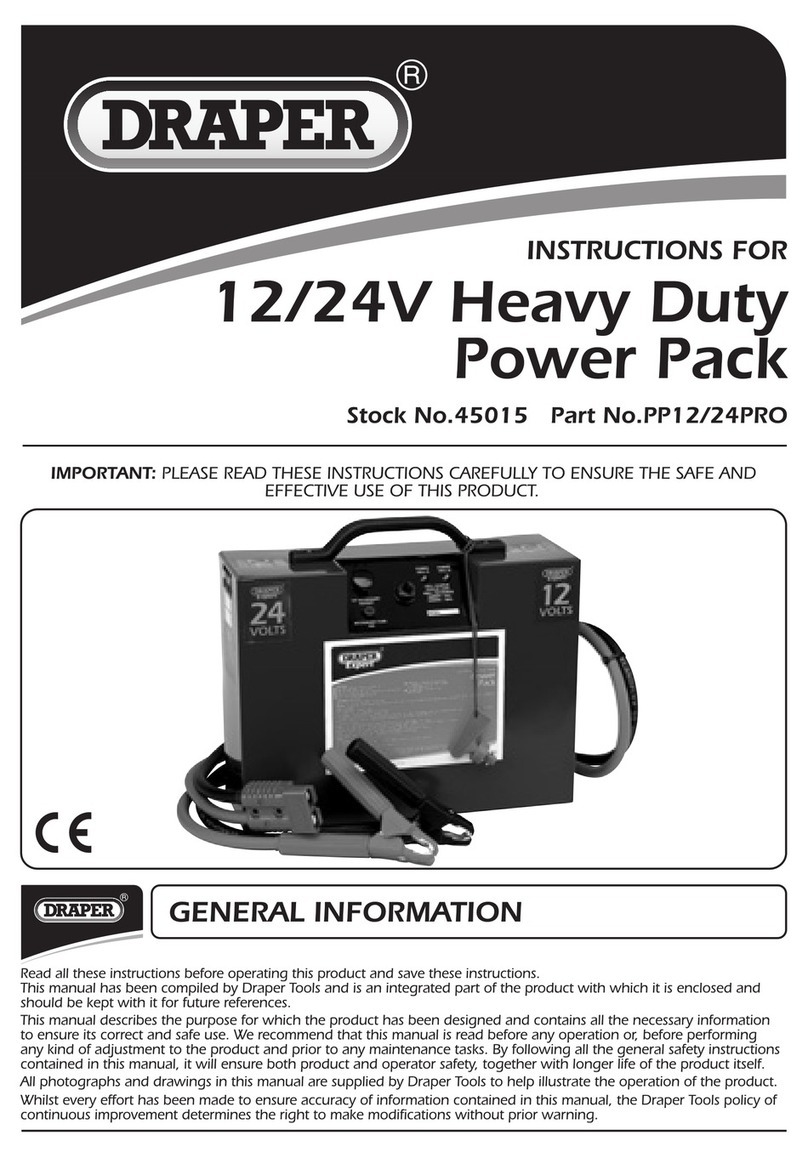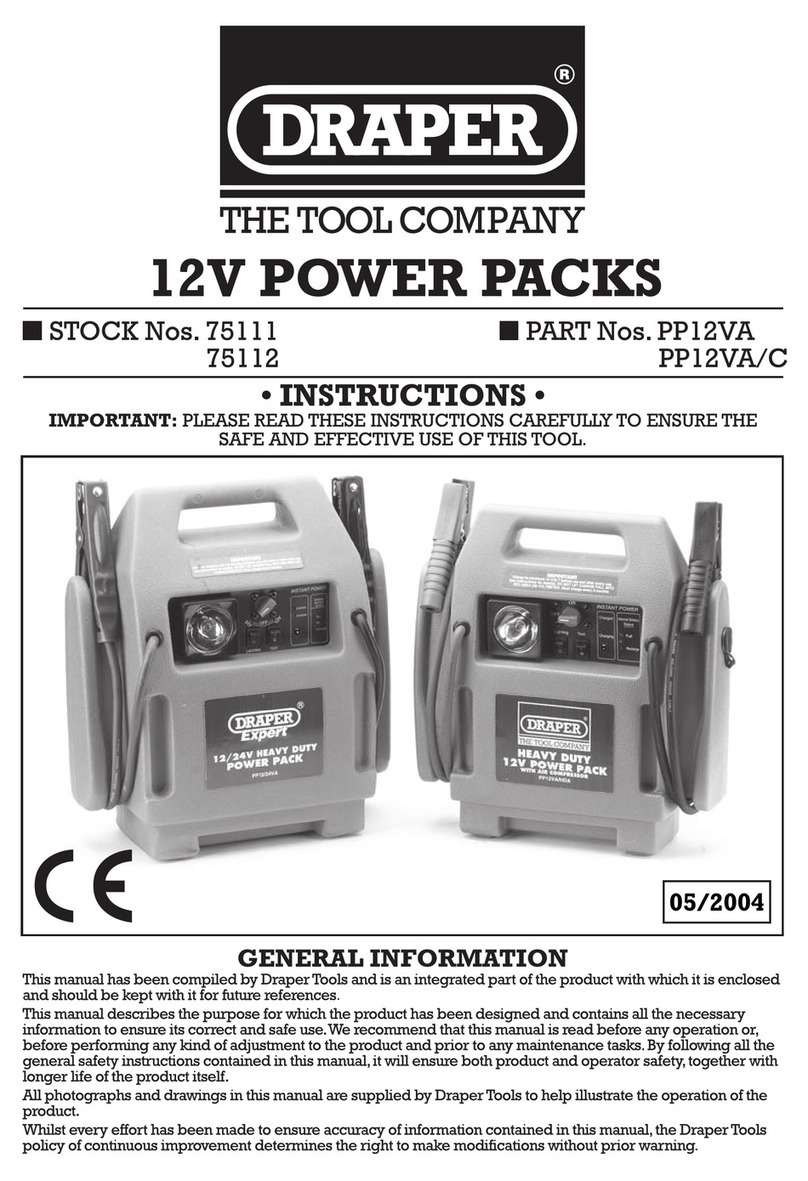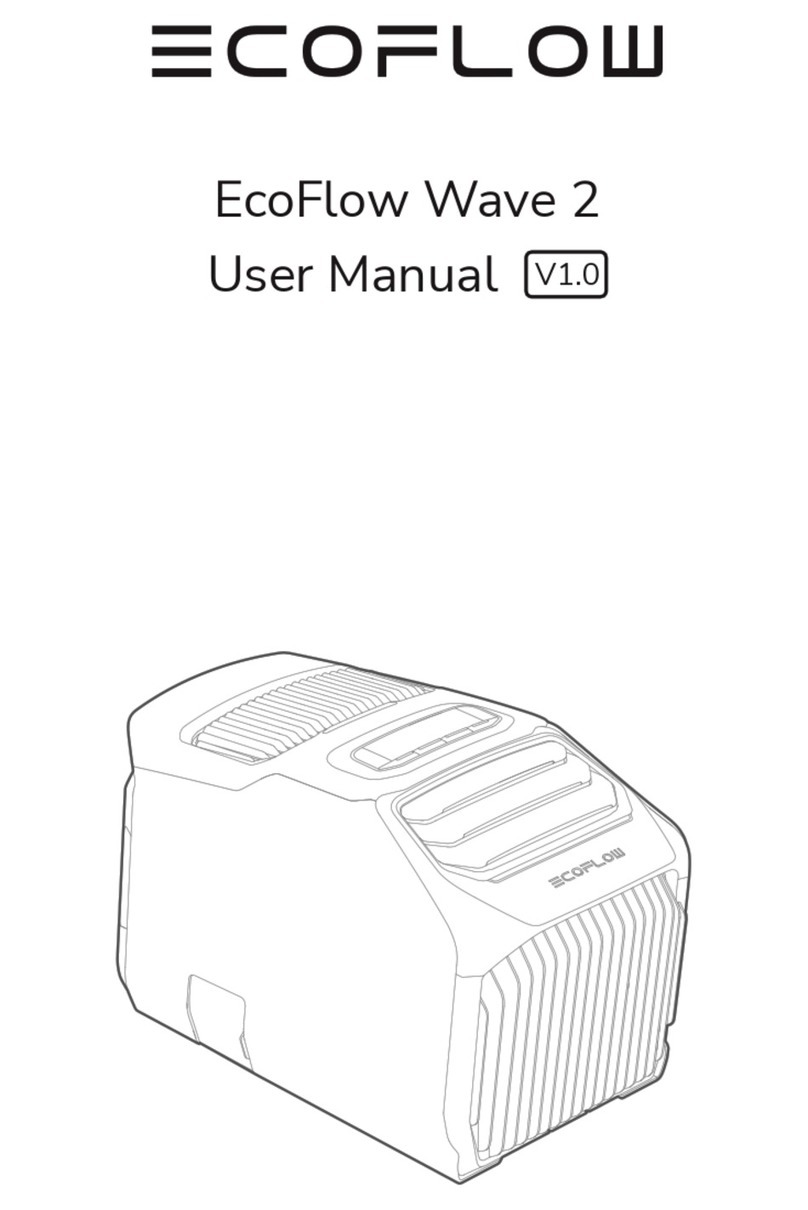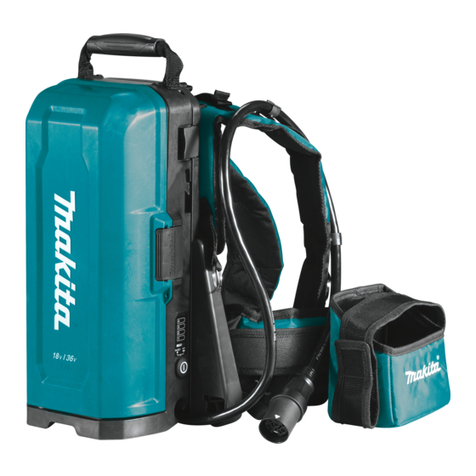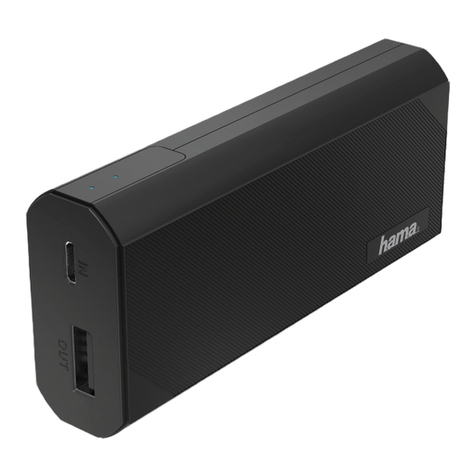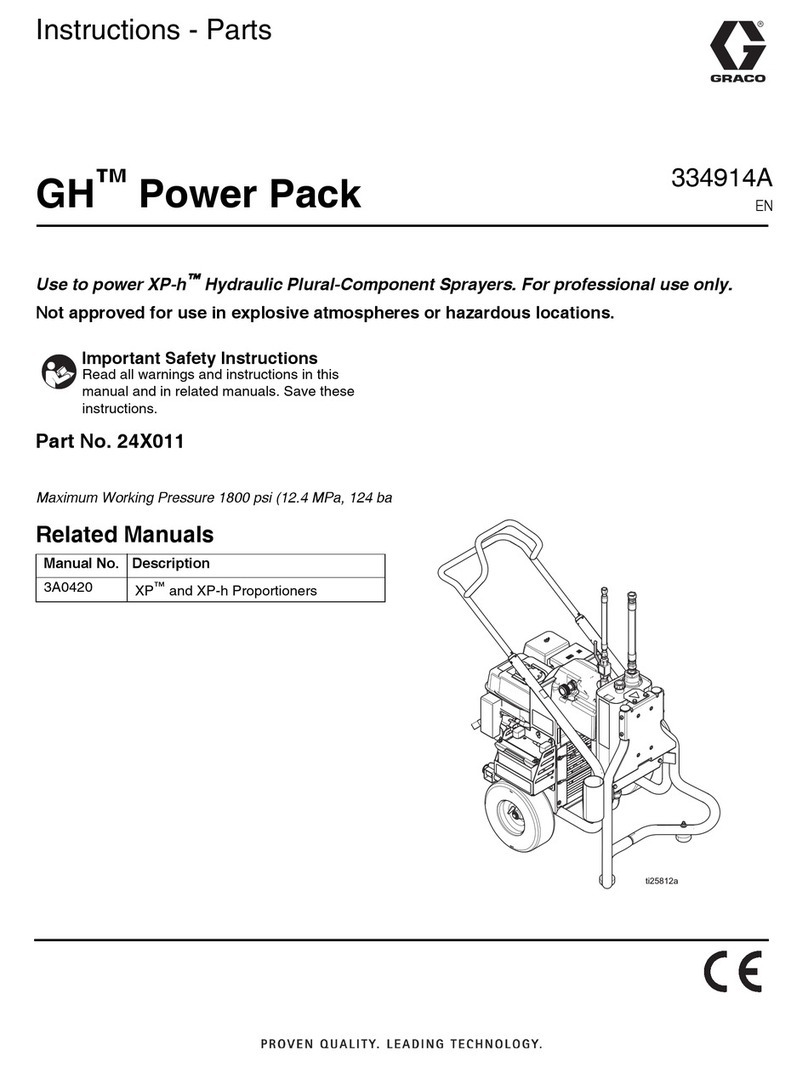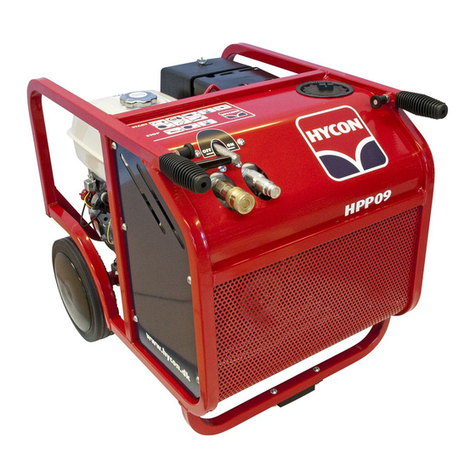5. HEALTH & SAFETY INFORMATION
– Avoid overdischarge, and charge the battery immediately after discharge.
– Unsatisfactory storage conditions may cause deterioration in battery performance,
shorten service life and could cause rust to form on the terminals.
– Do not allow metallic objects to touch or bridge the terminals especially jewellery.
Failure to observe the precautions may cause the battery to overheat, emit hydrogen
gas, leak, ignite or explode.
– Do not throw the battery into fire or heat the battery. The battery may explode or
generate a toxic gas if placed in contact with fire.
– Do not attempt to disassemble, remodel or destroy the battery, as it may cause the
battery leakage, fire or bursting, and could also create sulphuric acid spills from the
battery resulting in possible burns to personnel and damage to the immediate
environment.
– Do not continue to charge the battery beyond the time specified in the instructions. If
the battery is not fully charged even after being charged for a longer time than
specified, discontinue charging and remove the battery from the charger. Charging for
a longer time than specified may cause the battery to leak, ignite, or explode.
–
Do not discharge the batteries beyond the maximum values indicated on the battery. If
the battery is discharged beyond the maximum values, it may leak, ignite or explode.
– Keep the batteries beyond the reach of children.
– Wear gloves when handling batteries.
– Do not apply organic solvents such as paint thinner, petrol or liquid detergents to the
battery. If these are brought into contact with the battery case, it may crack, causing
leakage.
– The battery contains electrolyte (diluted sulphuric acid) a very toxic substance. If the
battery leaks and the liquid inside spills on the skin or clothing, immediately wash it
off with plenty of clean water. If the liquid splashes into eyes, immediately flush the
eyes with plenty of clean water and consult a doctor. Sulphuric acid will burn skin and
in the eyes may cause loss of eyesight.
– Store the battery in a stable position so as to keep the terminals of the battery away
from any metallic or other conductive material (including items that may fall or drop
onto the battery).
Protect the battery from rain. If the terminals of the battery come into contact with
water, they may corrode.
As a general rule, keep the battery in an upright position.
When storing the battery, disconnect it from the charger and keep it in a place where
the temperature is low. Do not store in direct sunlight or temperatures exceeding
60°C.
If the battery is stored for a year or longer without being charged, its service life may
be shortened. Store the battery after fully charging it, otherwise its service life may be
shortened.
– Use/recharge the battery regularly. The battery gradually deteriorates during storage
and consequently its decreased capacity may be irreversible even after recharging.
8
